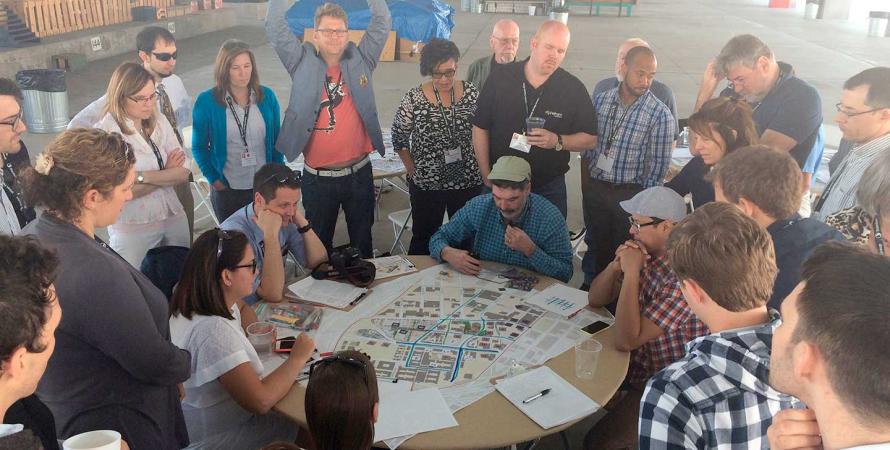-

New urban revival in flyover country
Two journalists travel America in a Cirrus plane, reporting on public-private partnerships, "walkable manufacturing," and what makes second-tier cities succeed.Successful small-to-mid-sized cities cities have revitalized downtowns, brewpubs, and big plans, according to James and Deborah Fallows, authors of Our Towns: A 100,000-mile Journey into the Heart of America. . They add a tongue-in-cheek rule: “The mark of a successful city is having a river walk,...Read more -

The next great urban reset
Sometime this century—perhaps in the next decade—America will be physically repurposed in a new urban form that is different from sprawl or 19th Century gridded towns. Is CNU ready to lead when that happens?Note: A session on the next "great urban reset" will be held at CNU 26.Savannah on Thursday, May 17. Urban resets are pretty rare in history but once in a century or two they appear. When the old system finally implodes, ideas lurking under the previous system are finally able to rise to the top to...Read more -

Why we code
Andres Duany offers more than 20 reasons why urban design coding is necessary—and he hopes that someday it will no longer be needed.Within the last half-century, some 30 million buildings have degraded cities and reduced landscapes. Must we tolerate this comprehensive disaster in exchange for the, perhaps, three thousand great buildings that great architects have produced? Such a win-loss ratio is as unacceptable in...Read more -

Five ways federal infrastructure spending makes cities poorer
A pithy summary of why our infrastructure spending goes wrong—and how to fix it.The United States Congress seems poised to spend a trillion dollars or more on infrastructure in a bipartisan consensus to stimulate the economy. Without major changes in our approach, this spending is going to make our cities poorer, weaken our country and -- once the temporary stimulus has passed...Read more